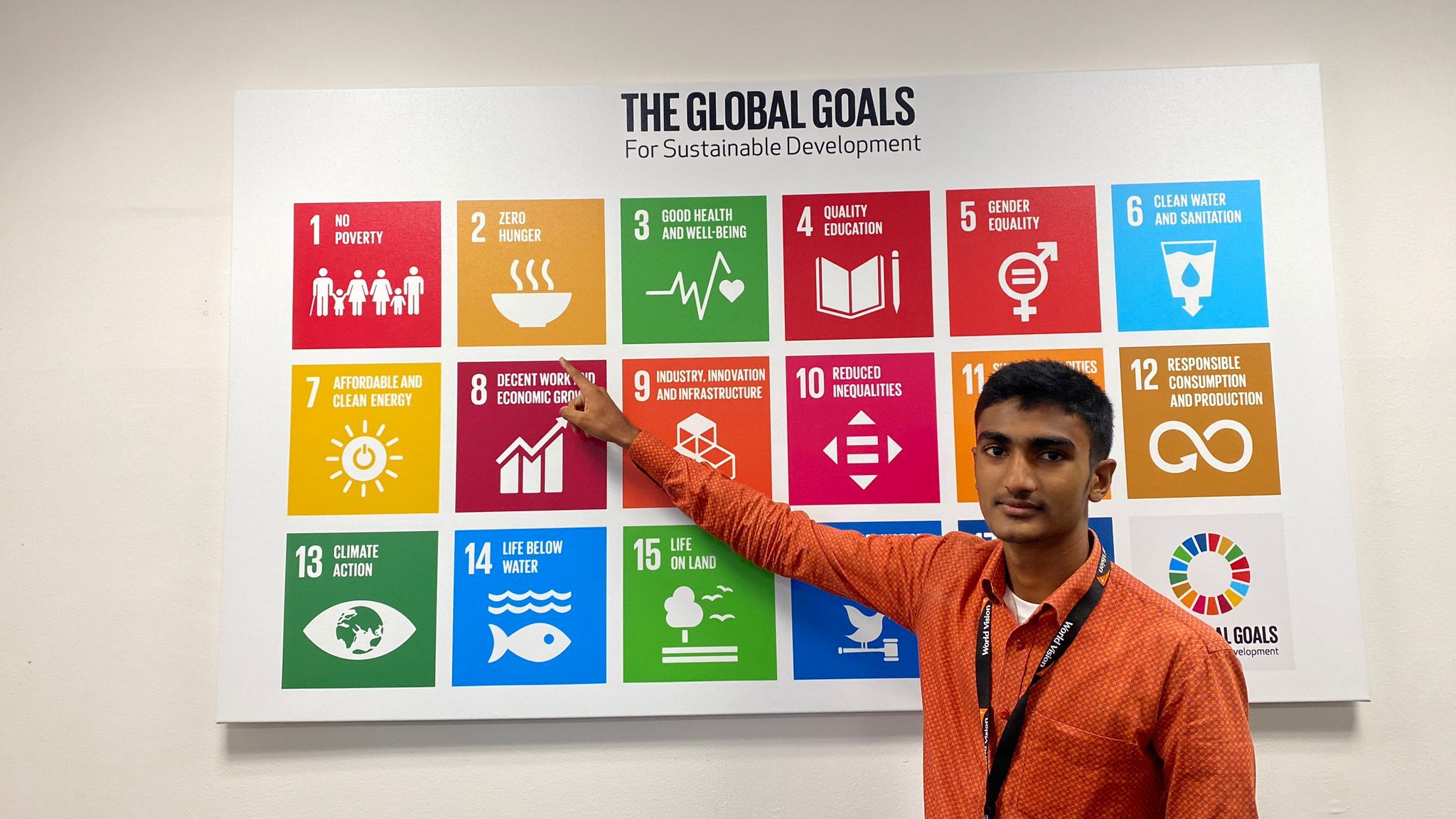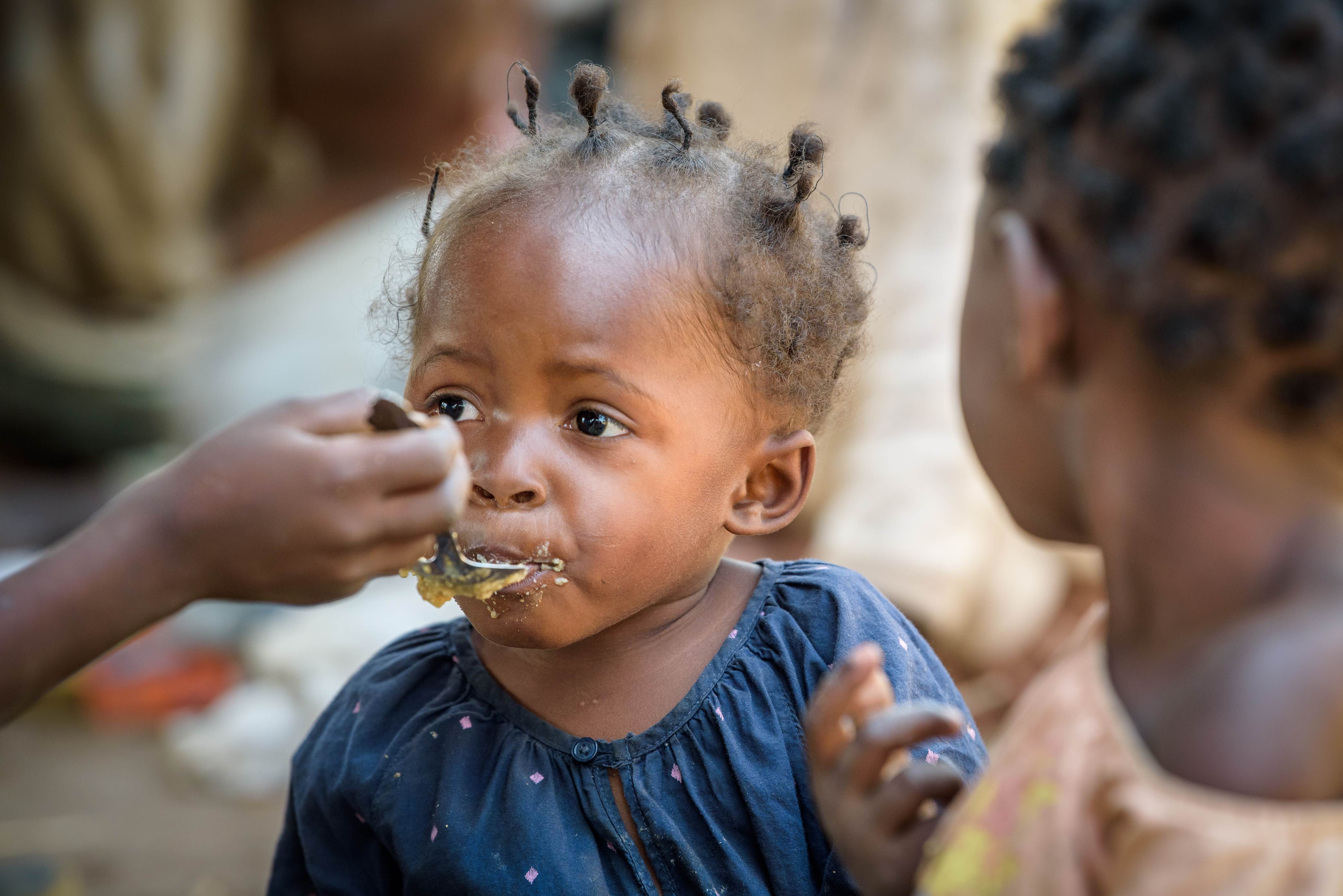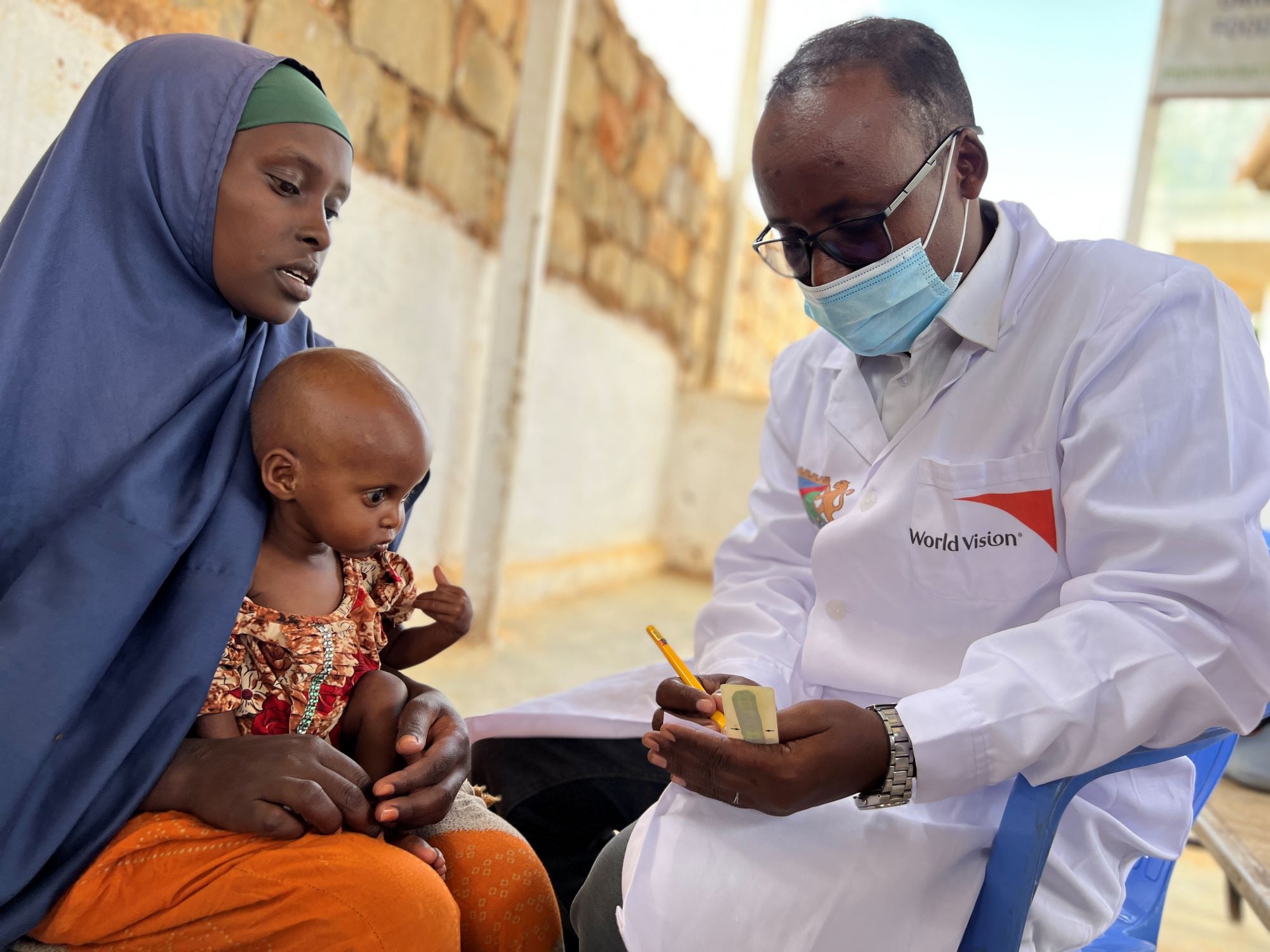
Youth Advocacy at Global Food Security Summit
Young advocates from around the world address governments and decision makers
On Monday 20 November, World Vision UK’s Youth Advocacy Network – along with other youth advocates from around the world – addressed the Global Food Security Summit, hosted by the UK Government in London.
They called on governments and decision makers to display an equal commitment to ALL children while using their resources and influence to ensure that every child has enough nutritious food to eat.
What is the Global Food Security Summit?
The Global Food Security Summit was held in response to the huge global problem of food insecurity and was coordinated in partnership with Somalia and the United Arab Emirates as part of its COP28 Presidency.
The aim of the summit was to focus international attention on the worsening global food security crisis and help boost efforts to achieve the second United Nations Sustainable Developmental Goal: zero hunger.
Discover how youth are advocating for change around the world in this video.
Global Food Security Summit highlights
The summit focused on four action pillars for food security and nutrition:
- Creating new approaches to ending preventable deaths of children.
- Harnessing science and technology for food security.
- Anticipating and preventing famine and food security crises.
- Building a climate-resilient and sustainable agriculture sector and food system.
World Vision’s CEO, Fola Komolafe, attended the summit and our Policy and Government Relations team were eagerly watching online to hear what was discussed. A highlight of the event was the impactful statement from the new Foreign Secretary Lord David Cameron stated that “access to good nutrition is foundational" and the UK Government announced:
- Up to £100m to respond to food security crises and their impacts in the world’s hunger and malnutrition hotspots, including Ethiopia, Sudan, South Sudan, the Sahel, Afghanistan, and Malawi.
- Up to £100 million to build resilience to climate shocks and provide food security for the most vulnerable families in Somalia to avert future humanitarian crises.
- A new UK science hub, where experts will develop climate resilient crops and identify risks to global food systems.
- An extra £16 million for the UNICEF-led Child Nutrition Fund.
Speakers, such as the Minister for Development, emphasised the importance of new sources of sustainable funding, partnerships, adopting a holistic approach to tackling hunger and malnutrition (which takes into account the intersection of conflict and climate change), and investing in preventative measures and resilience building.
The UK Government also launched their new white paper, which sets out how they will achieve the sustainable goals by 2030, including creating a world free of hunger.
READ MORE: Our response to the International Development White Paper

Addressing food insecurity challenges
Food insecurity (often referred to as hunger) is when a person or people do not have physical and economic access to sufficient, safe and nutritious food that meets their dietary needs and food preferences for an active and healthy life.
The United Nations estimates that 783 million people were facing hunger worldwide in 2022 - an increase of 122 million people compared to 2019.
The economic impacts of Covid and the war in Ukraine, combined with the ongoing impacts of climate change and conflict, have made ending child hunger and malnutrition even more challenging.
To respond to multiple global challenges, in 2015 the United Nations General Assembly adopted 17 Sustainable Development Goals (SDGs) designed to transform our world by 2030, including a Zero Hunger goal (SDG 2).
The United Nations has already raised the alarm that SDG 2 is off track and will not be achieved by the end of the decade.
Without urgent action from governments like our own, the consequences of the global hunger and malnutrition crisis on children could last for generations.

Partnering with young people
At the Global Food Security Summit and in the white paper, the Prime Minister, Foreign Secretary and Minister for Development Andrew Mitchell reemphasised the importance of working in partnership to end global hunger. However, they all failed to adequately address how the UK Government will partner with children, young people, and youth-led organisations.
At World Vision UK, we firmly believe children and young people must be seen by the UK Government as one of their valuable partners.
On one side of the coin, this means working with local groups in the Global South including grassroots and community-based organisations led by youth and children. The other side is ensuring that young people are visible and heard in the UK Government’s hunger, nutrition, and food security-related policies at all levels – including in high level decision-making and policy-making spaces like the Global Food Security Summit.
Promoting youth involvement and advocacy
Beyond the summit, the Foreign, Commonwealth and Development Office (FCDO) have committed to a digital roundtable within six months of the summit with these youth advocates – to continue the dialogue on the impact of food insecurity on children and to allow the UK Government to respond directly to their recommendations.
In all our discussions with the FCDO, we pushed the importance of feedback to ensure meaningful engagement with children and youth – engagement cannot be tokenistic.
Earlier this year, Minister for Development Andrew Mitchell committed to “amplifying the voices of young people and putting their interests front and centre in [FCDO] policies”. Including this call to action in the summit provided a great example to the FCDO nutrition team, and the wider department, as to how the FCDO can practically follow through with this commitment.
We were also able to start the conversation with the nutrition team on why it is important that children are visible and heard in the UK Government’s hunger, nutrition and food security-related policies.
Looking to 2024, World Vision UK will continue to petition the UK Government to use its influence and resources to promote ways of involvement of children and youth in decision-making at both national and global levels.
Holding the Government to account
World Vision’s Abby Jones, Policy & Campaigns Advisor says, “We welcome the UK Government’s renewed focus on the importance of food insecurity, and the intersecting issues such as conflict and climate change. But, as we know, empty commitments mean nothing. If we are to achieve SDG 2 and ensure that every child has enough nutritious food to eat, these commitments must be followed by concrete actions.”
As part of our newly launched ENOUGH campaign, World Vision will be asking our supporters to hold the UK Government to account over what they announced at the summit in the coming months.
In a world where there is enough food for everyone, discover how we're saying enough to child hunger and how you can help us reach more children with life-saving food.
Images from Global Food Security Summit © Foreign, Commonwealth & Development Office/Flickr. All other images © World Vision.



